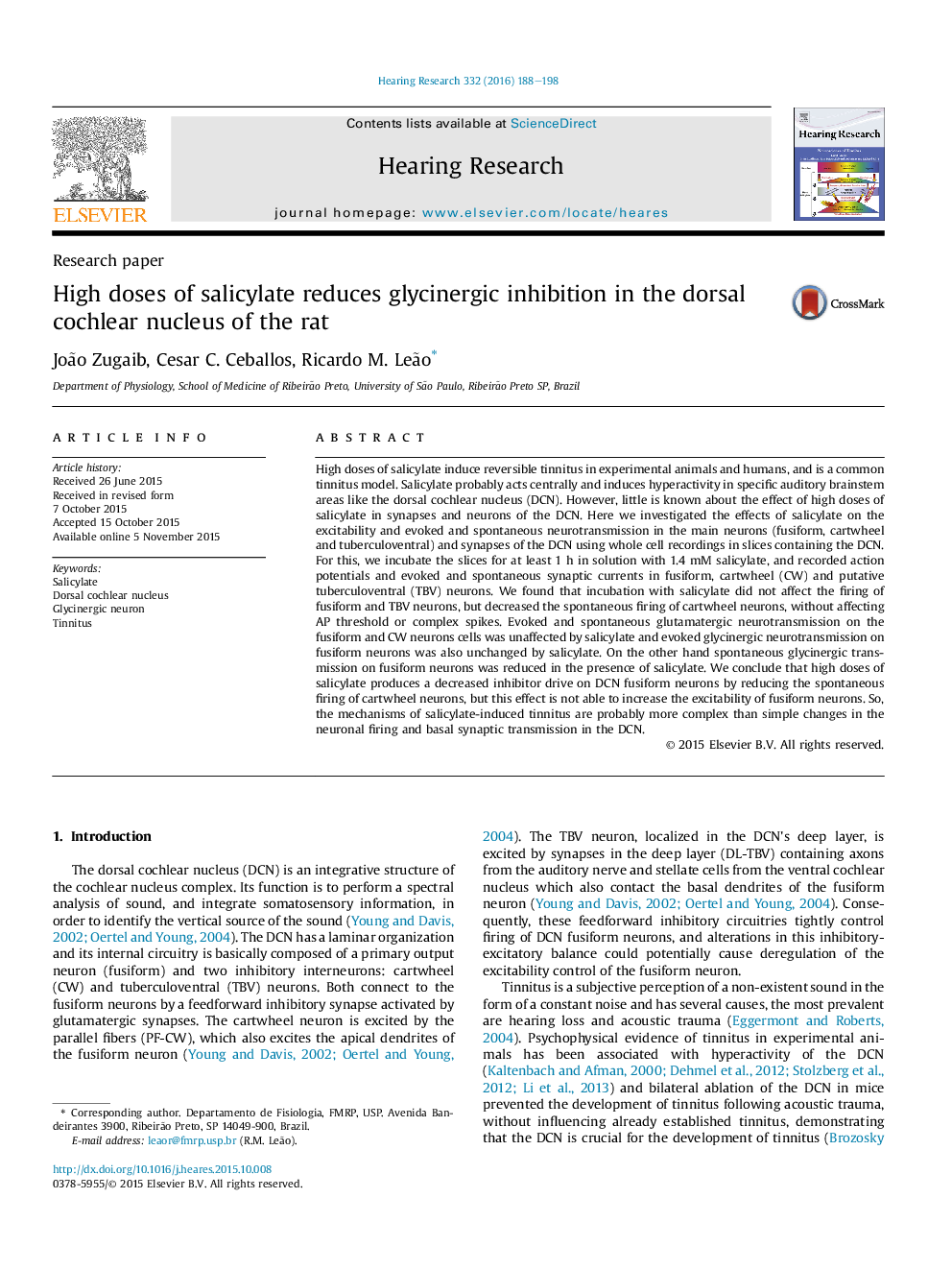| Article ID | Journal | Published Year | Pages | File Type |
|---|---|---|---|---|
| 6287157 | Hearing Research | 2016 | 11 Pages |
â¢We studied the effects of salicylate on neurons and synapses of DCN.â¢We found that salicylate reduces the firing of inhibitory cartwheel neurons.â¢Salicylate reduces tonic glycinergic inhibition on fusiform neurons.â¢Salicylate does not affect significantly DCN excitatory synapses.
High doses of salicylate induce reversible tinnitus in experimental animals and humans, and is a common tinnitus model. Salicylate probably acts centrally and induces hyperactivity in specific auditory brainstem areas like the dorsal cochlear nucleus (DCN). However, little is known about the effect of high doses of salicylate in synapses and neurons of the DCN. Here we investigated the effects of salicylate on the excitability and evoked and spontaneous neurotransmission in the main neurons (fusiform, cartwheel and tuberculoventral) and synapses of the DCN using whole cell recordings in slices containing the DCN. For this, we incubate the slices for at least 1Â h in solution with 1.4Â mM salicylate, and recorded action potentials and evoked and spontaneous synaptic currents in fusiform, cartwheel (CW) and putative tuberculoventral (TBV) neurons. We found that incubation with salicylate did not affect the firing of fusiform and TBV neurons, but decreased the spontaneous firing of cartwheel neurons, without affecting AP threshold or complex spikes. Evoked and spontaneous glutamatergic neurotransmission on the fusiform and CW neurons cells was unaffected by salicylate and evoked glycinergic neurotransmission on fusiform neurons was also unchanged by salicylate. On the other hand spontaneous glycinergic transmission on fusiform neurons was reduced in the presence of salicylate. We conclude that high doses of salicylate produces a decreased inhibitor drive on DCN fusiform neurons by reducing the spontaneous firing of cartwheel neurons, but this effect is not able to increase the excitability of fusiform neurons. So, the mechanisms of salicylate-induced tinnitus are probably more complex than simple changes in the neuronal firing and basal synaptic transmission in the DCN.
